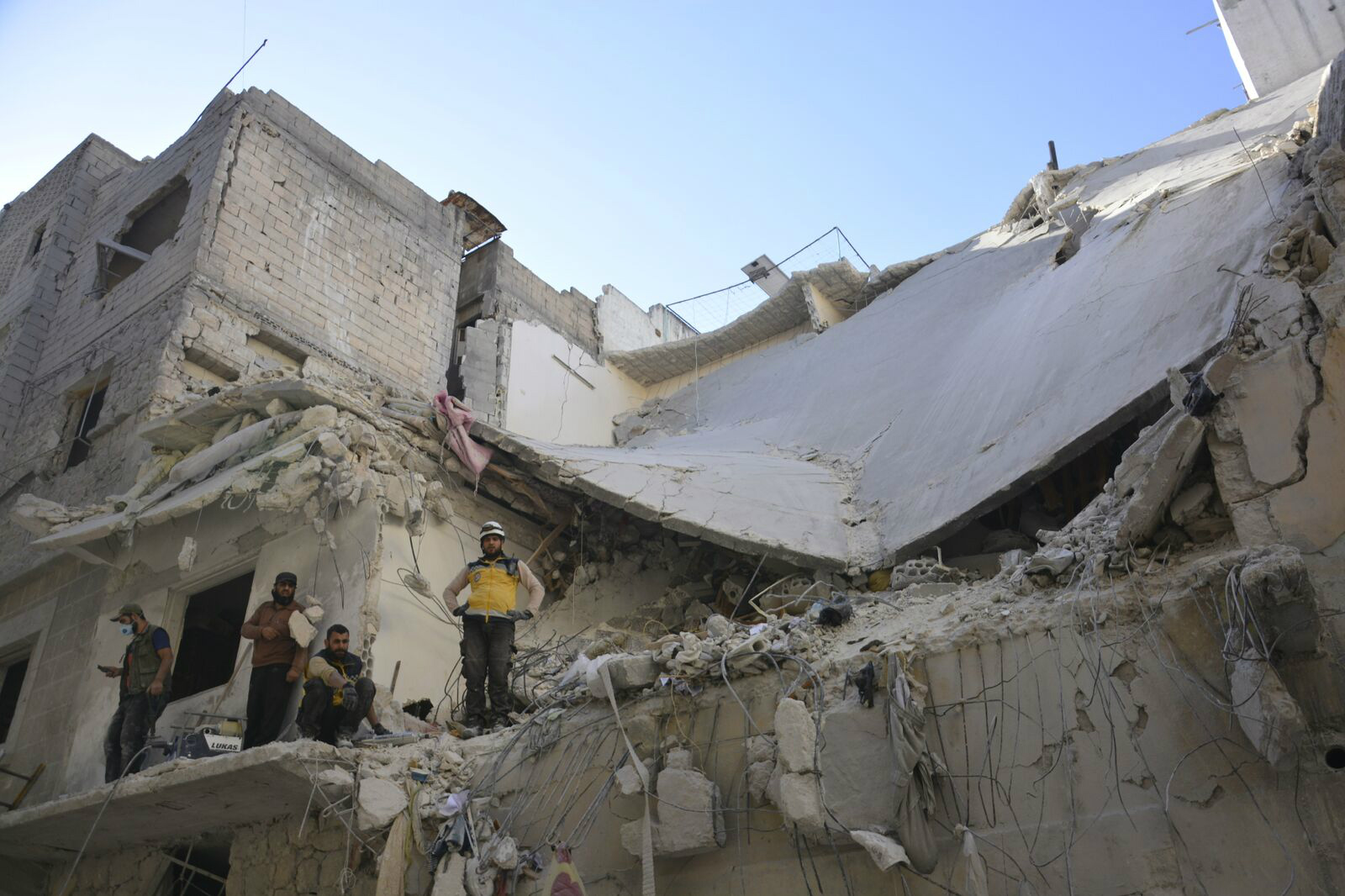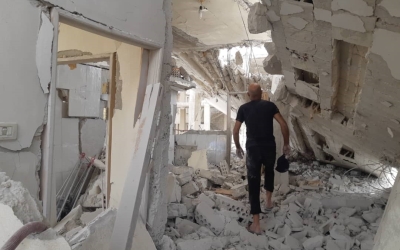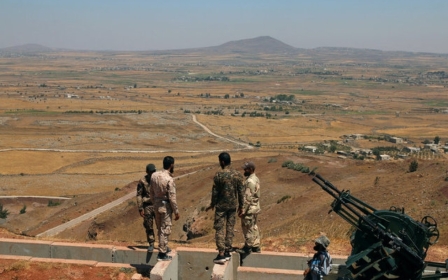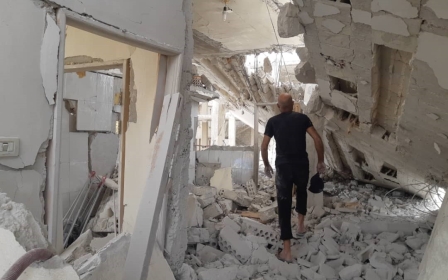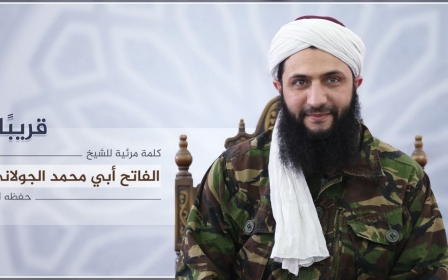'Panic and fear': Children among dead as Syrian jets bomb Ariha
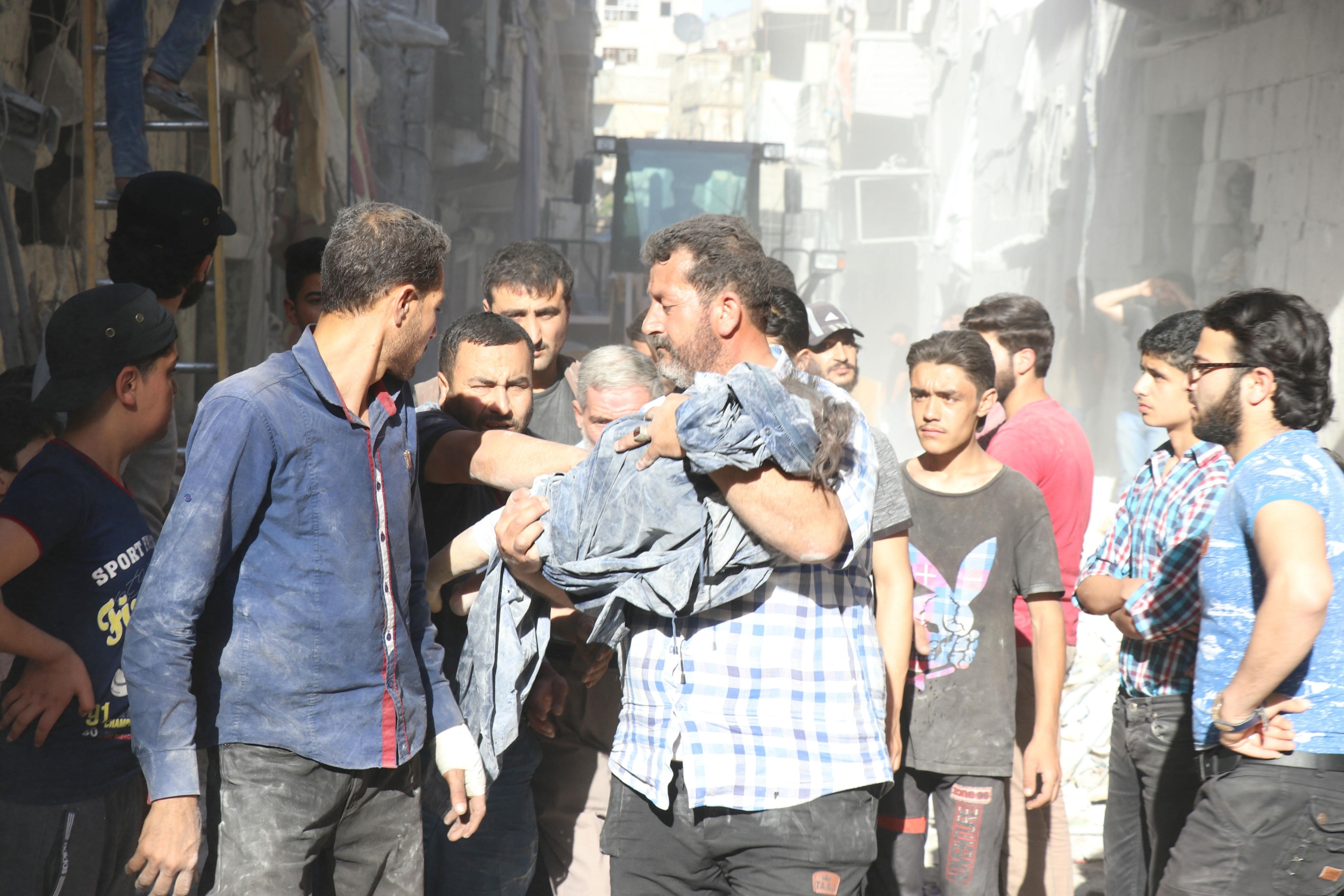
As mosques in Ariha were calling worshippers to Dhuhr prayers at noon on Monday, Syrian government planes had taken to the sky and were preparing to attack the city in rebel-held southern Idlib.
Activist Fares Zine al-Abidine, who was displaced from the southern city of Daraa and is now a resident of Ariha in northern Syria, told Middle East Eye he had heard warnings of possible air strikes on surrounding towns and had felt unsafe.
As the prayers began, the warplanes launched their attack on Ariha, located in Jabal al-Zawiyeh, leading to a massacre that killed 11 civilians, including six children and four women.
"Attacks on a civilian neighbourhood were launched near the popular market during noon prayers," said Abidine.
"Panic and fear took hold of the city and the smell of gunpowder and blood rose from the blast site as fears of a second attack grew."
New MEE newsletter: Jerusalem Dispatch
Sign up to get the latest insights and analysis on Israel-Palestine, alongside Turkey Unpacked and other MEE newsletters
Reprisal fears
In the midst of the terrible scene, Civil Defence team first responders, known as "White Helmets", rushed to search for survivors.
One woman was pulled out of the rubble. She had died while praying when the roof of her house was demolished in the attack.
A few minutes later, a dead child was recovered from under the rubble. The girl's body was carried by a man believed to be her father or a close relative. He was in shock and unable to speak.
Mohammed Hatem al-Hashem, director of the White Helmets centre in Ariha, told MEE late on Monday: "We have been continuing our work for 11 hours to pull the rest of the victims out of the rubble.
"The attacks killed 11 civilians, including six children and four women, and wounded 20 civilians, most of them women and children."
Some speculated the attack by the Syrian government may have been a reprisal, as it occurred on the same day the government lost Ariha on 28 May, 2015, exactly four years ago.
Daily attacks
Although Idlib province witnessed an uneasy lull in violence in late 2018 following a Turkish and Russian agreement brokered in Sochi, the Syrian government and its ally Russia have continued to violate the deal.
In a major escalation since the beginning of this month, Damascus and Moscow have launched multiple air attacks to try to take control of Idlib, the last bastion of the rebels which is now under the control of Hay'at Tahrir al-Sham (HTS), al-Qaeda’s former Syrian branch.
According to a report released on Monday by the Syrian Observatory for Human Rights, a UK-based activist group, the escalation in violence has left 834 people dead since 30 April.
While the United Nations says about 200,000 civilians have been displaced since the escalation in a province where about three million people live.
The towns and villages of southern Idlib have become virtual ghost towns because most of the population has been displaced in these strategic areas around the M5 highway, which links the government-controlled governorates of Aleppo and Hama.
Although most of the population has been displaced, southern Idlib is still subjected to daily attacks, among them Kafranbel, the city of activist Ammar Albouch.
"Yesterday [Monday], nine helicopters rotated operations as they shelled the village of Maar Tahroma with 13 barrel bombs," Albouch told MEE.
"All vital facilities are vulnerable to targeting, including public markets, hospitals and the White Helmets.
"When the sky is almost free of helicopter and warplanes, bombing begins with rocket launchers," he added.
'Cluster munitions'
The attacks by the Syrian government and Russia since the beginning of this month have resulted in the rebels losing about 100 square kilometres of their area south of Idlib and north of Hama.
Government forces have already begun to expand fronts to most of Idlib's border, including northern Latakia and parts of the Aleppo countryside.
On Monday, government forces launched rocket attacks close to the villages of Rsm al-Ais, al-Kuseiba and Tel Hadiyya in Jabal Sam'an in southern Aleppo which borders Idlib province, about 5km from the residence of the activist Mohammed al-Hussein.
"The number of rockets is estimated to be around 50, some of which carry incendiary materials believed to be phosphorous, while others carry cluster munitions," Hussein told MEE.
"The rockets caused damage to civilian property, and fire broke out in agricultural land and crops were destroyed along an area of about 10km."
While fighting continues in northern Latakia, four HTS fighters were admitted to hospital on 19 May after an air assault on the village of Kabana in Latakia.
Medical staff said they smelt a substance "that was very similar to that of chlorine" during treatment, according to a report by the UK's Telegraph newspaper.
The US State Department said on Saturday that investigations are continuing into allegations of the continuing use of chemical weapons by the Syrian government on the city of Idlib.
Middle East Eye delivers independent and unrivalled coverage and analysis of the Middle East, North Africa and beyond. To learn more about republishing this content and the associated fees, please fill out this form. More about MEE can be found here.


